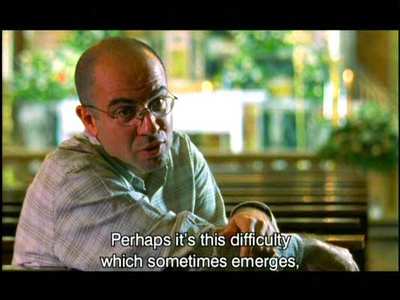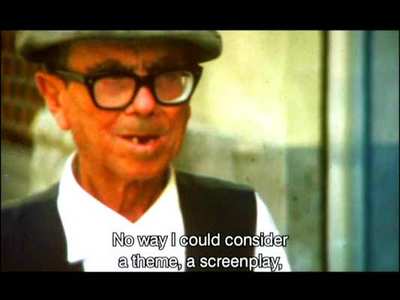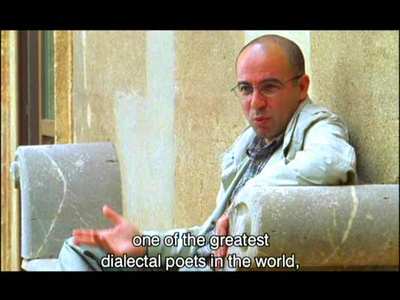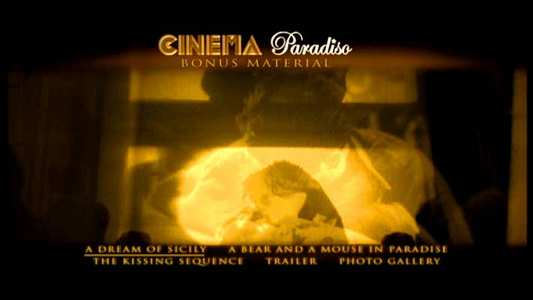Review of Cinema Paradiso: Deluxe Edition Box Set
Introduction
Going to the cinema these days is an entirely different experience than several decades ago. Largely gone are the small independent cinemas that existed in the town centre or the suburbs, attracting everyone from that town. Showings were often sold out and the variety of films was extensive with `B` movies and a newsreel preceding the main feature and a children`s matinee on Saturdays. Whereas now a family of four will be lucky to receive change from £50 from a visit to the nearest multiplex after buying tickets and sustenance, times were that cinemas were places offering heat and shelter and somewhere that you could buy a ticket and spend several hours, if not all day, inside watching movies. Giuseppe Tornatore is not the only person to notice the decline of the local cinema and `Cinema Paradiso` is his reflection on growing up in a town with a small cinema and the `progress` that has seen them disappear.
This is the `Deluxe Edition` of `Cinema Paradiso` which, as with the 2003 release, includes both the theatrical version and the extended Director`s Cut. It is necessary to distinguish between the two versions as Tornatore`s preferred version, with nearly 50 minutes of extra footage, is virtually a different film from the one initially released in cinemas.
As with such films as `Citizen Kane` and `Once Upon a Time in America`, `Cinema Paradiso` is told as a flashback. When successful film director Salvatore is told of the death of Alfredo, who, we are told, is not a relative, but obviously an important person in his life, Salvatore, nicknamed `Toto`, thinks back to his youth in Sicily and the profound effect that Alfredo and the titular cinema had on him.
Released as a two-hour film to poor reviews, director Giuseppe Tornatore re-edited his semi-autobiographical film to include the footage he initially cut out to create the now lauded Director`s Cut.

Video
A perfectly clear anamorphic transfer, although some darker scenes are let down by poor contrast - the `Deluxe Edition` should really be pin-sharp.

Audio
Whoever mixed the 5.1 soundtrack needs their hearing tested as I selected it, sat back to watch the film and then needed to check if my centre speaker was working as there was virtually no sound emanating from it. All the dialogue came from the front surrounds and it seemed as if the two channels of the original stereo soundtrack were being channeled through the four surrounds. Fortunately, the stereo track is perfectly clear but this is scant compensation as I was really looking forward to listening to Morricone`s brilliant score in 5.1. The mix on the theatrical version isn`t as bad as on the Director`s Cut, which omits the centre speaker completely, but the stereo soundtrack is clearer and far superior on both versions of the film.

Features
Disc One contains the theatrical version, with the Director`s Cut on Disc Two. Disc Three contains the Extra Features and this set comes with the CD Soundtrack of Ennio Morricone`s award winning score which unfortunately was not part of the review set.
`Giuseppe Tornatore: A Dream Of Sicily` is an overview of Tornatore`s career and he discusses his relationship with his birthplace and the possibility that he might need psychiatric help, as every one of his films, except one, contain footage of the sea, which terrifies him! This is the only film of Tornatore`s that I have seen, so this was interesting but didn`t mean as much to me as it would to an avid fan of Tornatore.
In the funny and interesting documentary `A Bear And A Mouse In Paradise`, Tornatore, Philippe Noiret and Salvatore Cascio are interviewed about the relationship between Alfredo and the young Salvatore, casting and working with a child actor.
`The Kissing Scene` focuses on the last scene in the film and Tornatore explains how he conceived, made and shot it and how he came to be the projectionist. The scene then runs in its entirety but with the names of the films that the kissing scenes have been taken from and the actors involved scrolling along the bottom of the screen.
Rounding off the extra features is a trailer for the theatrical release of the Director`s Cut and a stills gallery.

Conclusion
When I last saw `Cinema Paradiso` two years ago, I noted that `although well directed and acted, Cinema Paradiso is too long and over melodramatic for it`s own good`. Having now watched both versions of the film, my appreciation of the film has grown and I loved every minute of it!
If you`ve seen both versions of the film then you`ll know there is no reason to watch the theatrical cut, but if you`re new to the film and want to watch both versions, you should watch disc one first, then disc two; having done this, you`ll probably never watch disc one again! I can`t think of a good reason why anyone should watch the theatrical cut of the film when the Director`s Cut is available.
There are numerous reasons for cutting scenes from films: poor performances, continuity errors, pacing or length. As Tornatore explains elsewhere, this film was cut because the distributors erroneously believed that it flopped at the cinemas because it was too long and not because it had been poorly promoted. Some films can do with some prudent editing because they feel flabby and too long, but this is not one of them; even at 168 minutes it isn`t a second too long. The theatrical version has entire sections missing, which are restored in the Director`s Cut, giving the film a recognisable three act structure, with the second and third acts fleshed out. The relationship between Toto and Elena is far more developed and the ending is therefore more powerful and moving.
`Cinema Paradiso`, especially in the longer form, is a cinematic triumph: unashamedly sentimental and beautifully directed and acted, particularly in the first hour in the scenes between Alfredo and the young Toto. The extra features probably do not justify a `double dip` for anyone who owns a previous release with the Director`s Cut, but, for anyone else, this is heartily recommended.
Your Opinions and Comments
Be the first to post a comment!